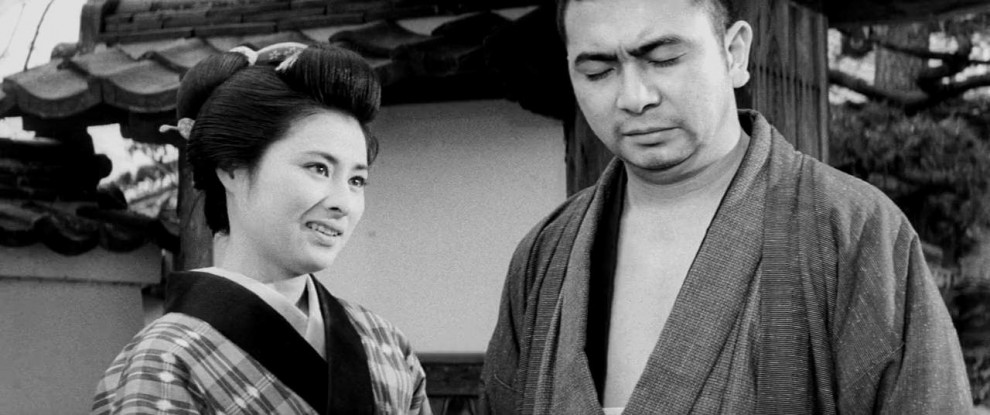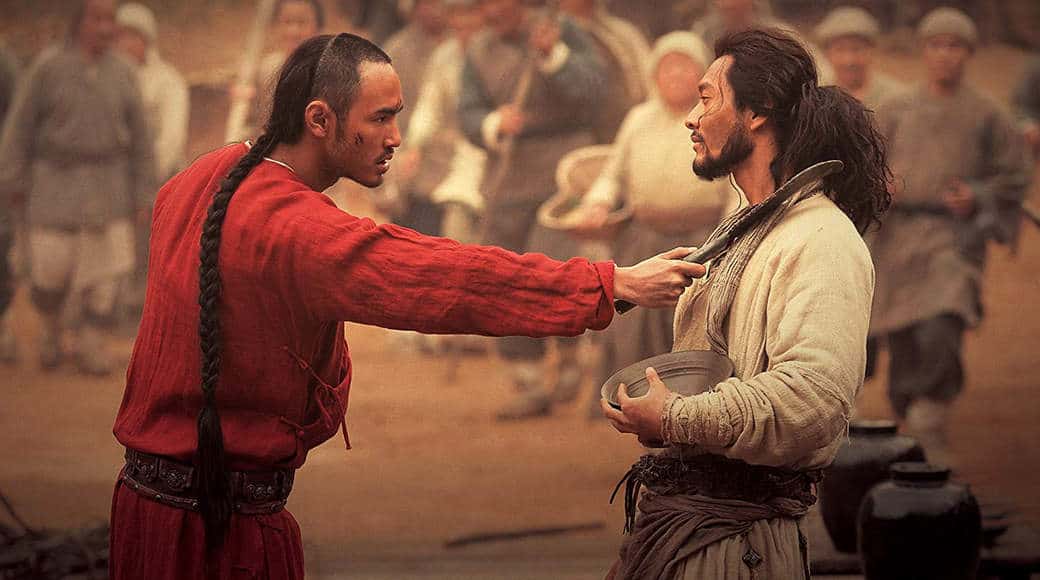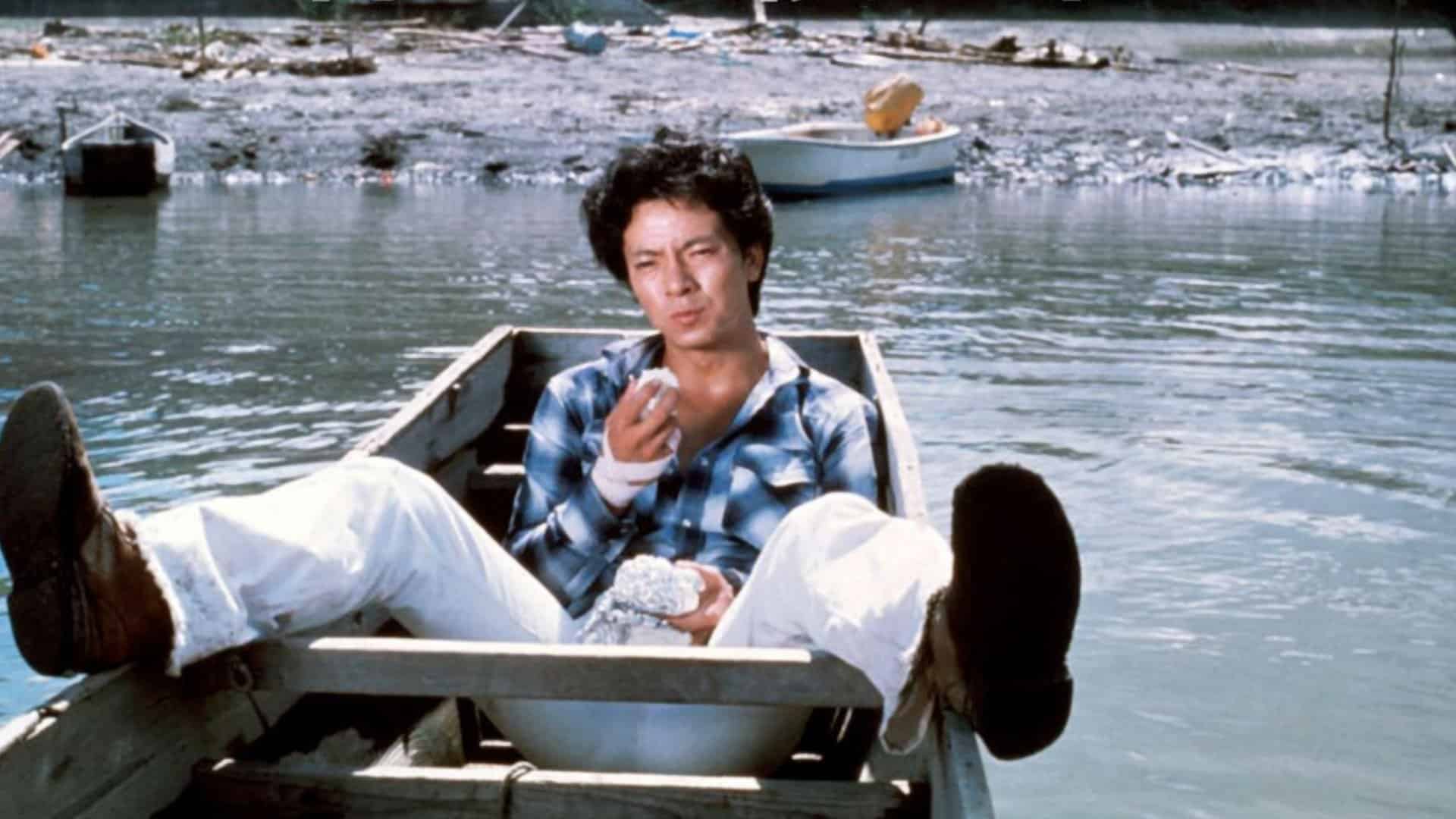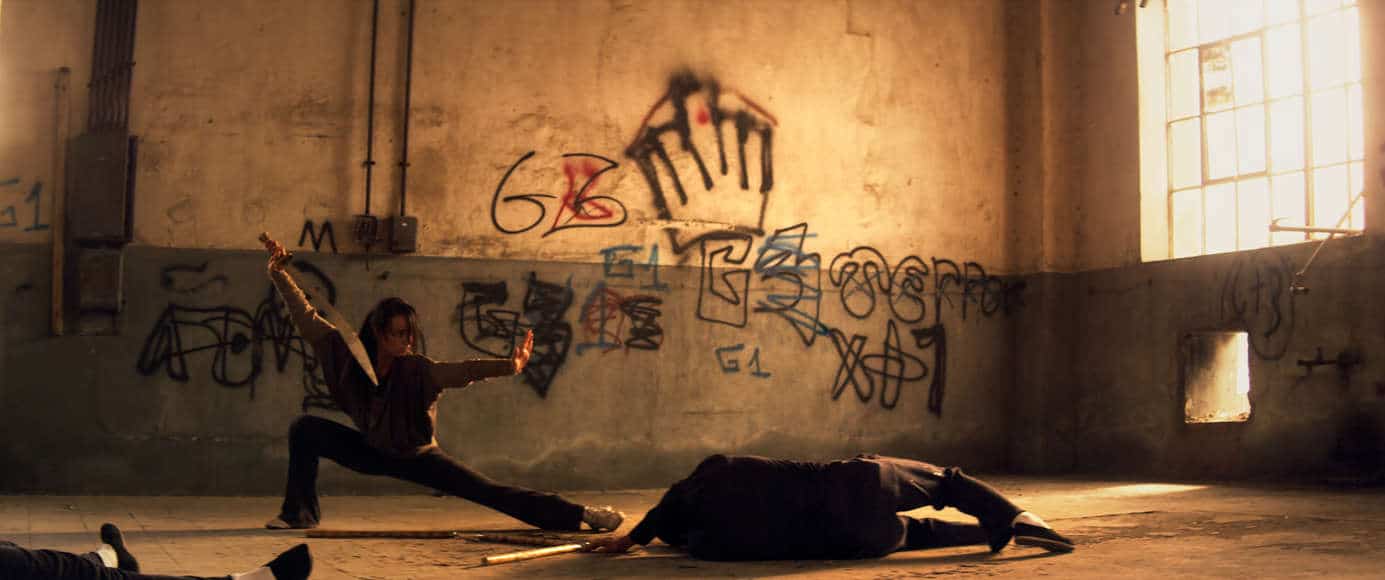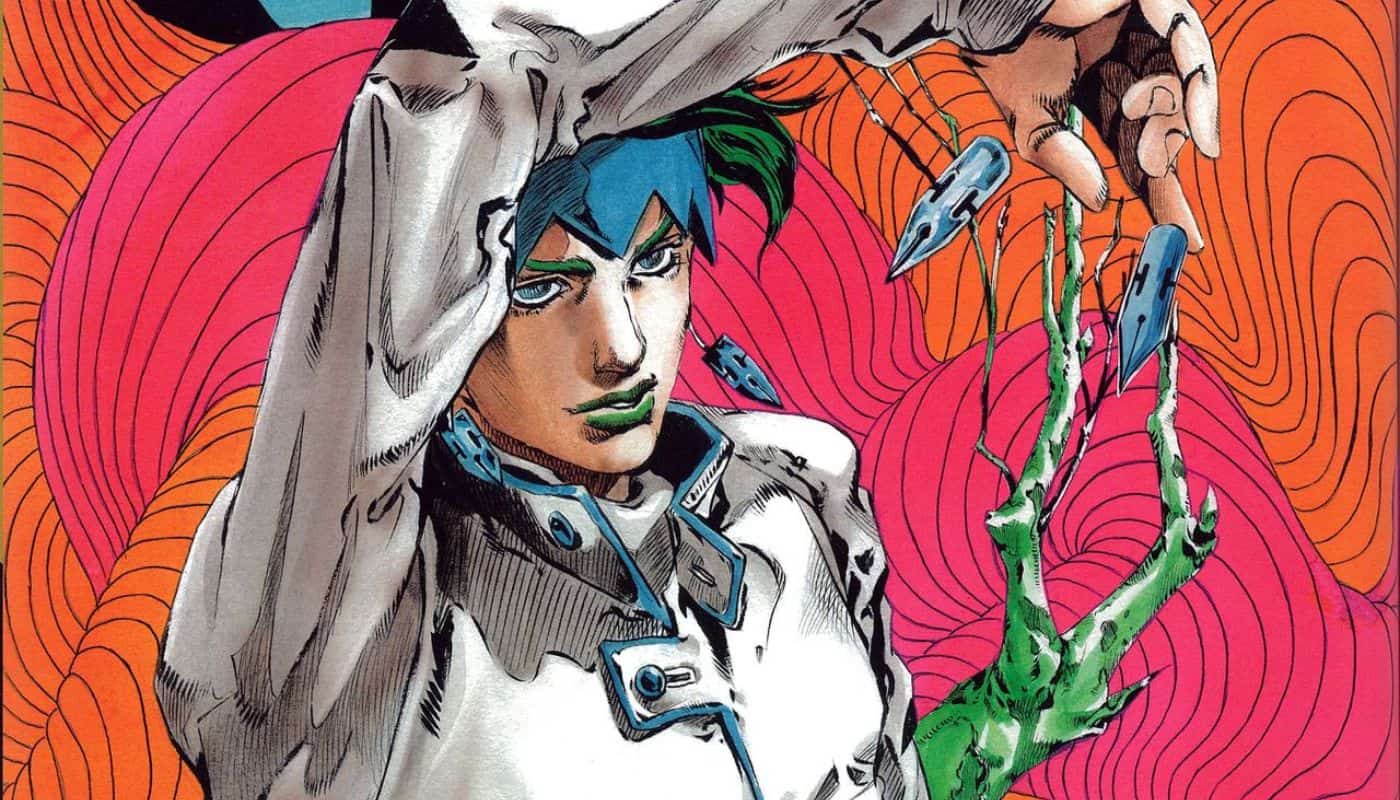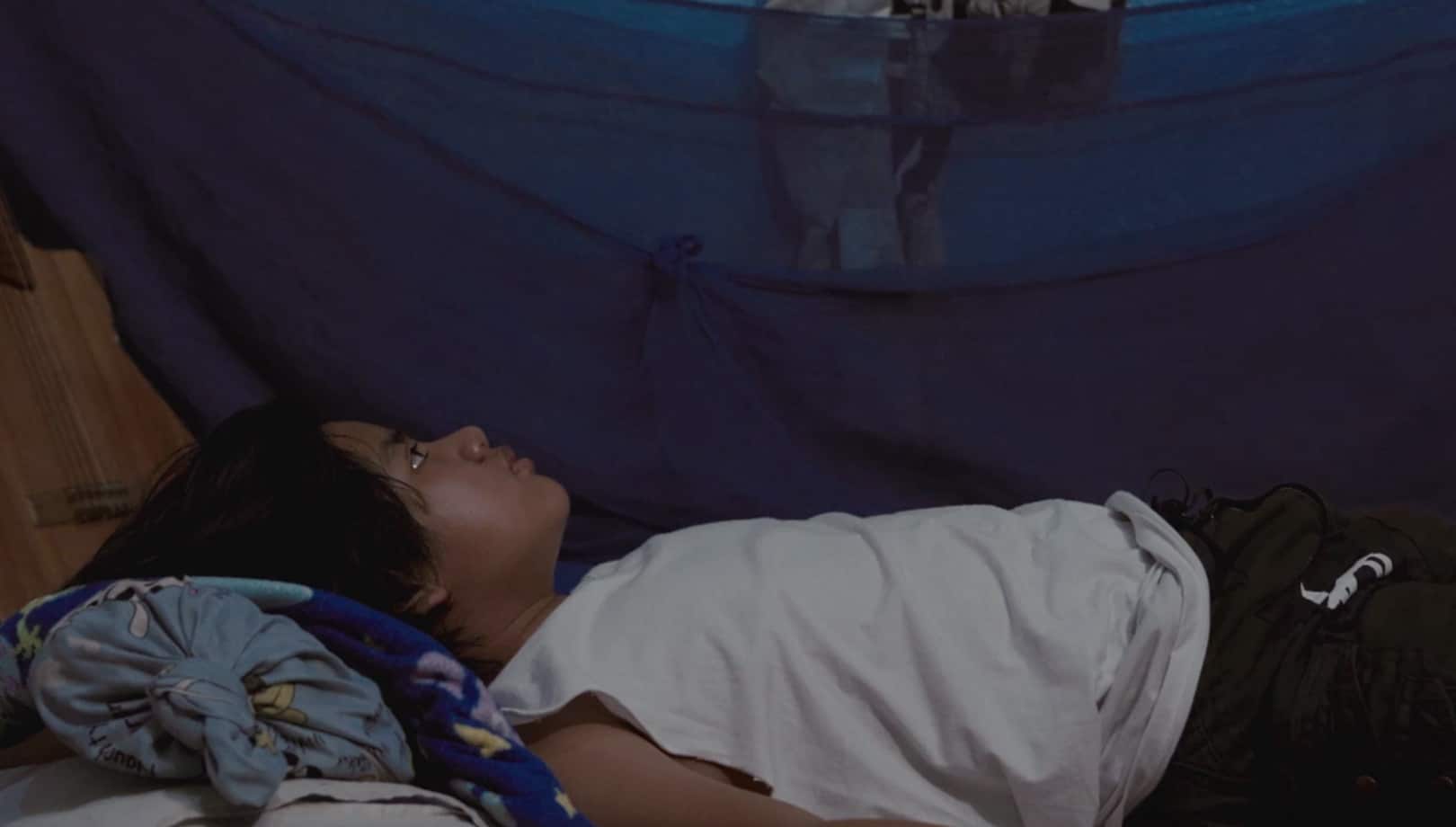In retrospect, the continuing popularity of a character such as Zatoichi, the blind masseur and skilled swordsman, fits within the overall mood of the 1960s. Much like Akira Kurosawa classic “Yojimbo” (1961) the story of an underdog, a man shunned by society, drawn towards the criminal sideways of Japanese society, but following a certain moral compass, Kenji Misumi's work would also continue to be celebrated by Japanese and international audiences alike. At the same time, given the film's story, it becomes obvious Daei studios never imagined the story of this character would resonate within Japanese people. Kenji Misumi, who would also direct some of the most impressive entries within the “Lone Wolf and Cub”-series, together with this main star Shintaro Katsu, had given birth to one of the most iconic characters of Japanese cinema.
Buy This Title
Impressed by his skills as a swordsman, yakuza gang leader Sukegoro (Eijiro Yanagi) hires the former masseur Zatoichi (Shintaro Katsu) to support him in defeating a rival gang led by Shigezo (Ryuzo Shimada). Even though Sukegoro's men are skeptical since Zatoichi is blind, he quickly convinces them with his formidable skills using his cane sword. As the rival gang leader hears about this new warrior, he also hires a ronin to fight by his side, Miki Hirate (Shigeru Amachi), a man of a great skill but gravely sick with tuberculosis.
Even though he dislikes the idea of a war, Zatoichi accepts the offer by Sukegoro and immediately finds himself in the midst of a dispute that quickly turns violent. Especially since he has befriended Hirate, who has become aware of Zatoichi's skill and great sense of observation, the idea of killing him becomes quite a moral struggle for the blind man. However, as the conflict starts to escalate, both men are forced to face each other on the battlefield.
Although perhaps the majority of cinephiles is familiar with Katsu's performance as Zatoichi, a review of this first entry into the series would not be complete without focusing on this aspect of the production. Given his blindness, he becomes an outsider in this world who is used to judge people by appearance, an attitude Zatoichi frequently uses to his advantage, for example, when he tricks Sukegoro's men who think they can exploit the blind man's handicap. Fittingly, Zatoichi shows empathy for the exploited, the weak and the poor, as he becomes a friend to Hirate, displaying great concern for the ronin's illness. His hesitation to resort to violence equally marks his state as the outsider within a system designed to benefit those with strength, wealth and the right cutthroat attitude.

Frequently, Minoru Inuzuka's script exposes the rotten core of the world the movie is set in. While the main focus lies in the story of the blind masseur, Misumi's film takes its time to also temporarily focus on Sukegoro's men, especially Tatekichi (Michiro Minami), whose ambition to rise within the ranks of the yakuza, results in him blackmailing his beautiful sister to marry one of the other criminals. Zatoichi and Hirate, the only men with some sense of right and wrong within them, have become servants to men encouraging this cycle of extortion and moral corrosion. Fittingly, Zatoichi states to Tatekichi's sister to educate her future children so they will never be gangsters like him who have (quite literally) turned a blind eye to so much suffering in the world around them, and have indeed become part of the problem in their own minds.
Given the attitude towards acts of violence and brutality, Misumi refrains from glorifying these scenes. Even the impressive demonstrations of Zatoichi's skill are shown as little more than swift movements, something men like him do not do lightly and most importantly not for sheer entertainment. It is only logical that the actual battle, the inevitable war between the clans should be a nightmare, a fight without honor or dignity, impressively shot by cinematographer Chishi Makiura's and supported by the drum-heavy score by Akira Ifukube.
In the end, “The Tale of Zatoichi” is a film which lays the foundations for one of cinema's greatest characters. Given the skilled direction of Kenji Misumi and the performance of Shintaro Katsu, “The Tale of Zatoichi” is a sheer delight for fans of the genre.


